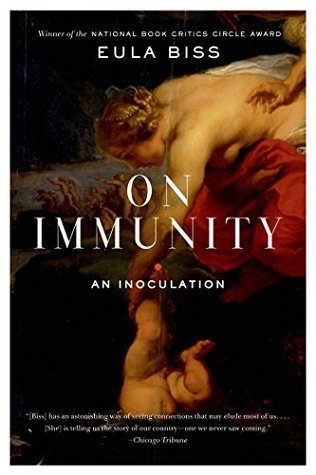More on this book
Community
Kindle Notes & Highlights
it is fair to think of vaccination as a kind of banking of immunity. Contributions to this bank are donations to those who cannot or will not be protected by their own immunity. This is the principle of herd immunity, and it is through herd immunity that mass vaccination becomes far more effective than individual vaccination.
But when enough people are vaccinated with even a relatively ineffective vaccine, viruses have trouble moving from host to host and cease to spread, sparing both the unvaccinated and those in whom vaccination has not produced immunity.
“Perceptions of risk—the intuitive judgments that people make about the hazards of their world,” the historian Michael Willrich observes, “can be stubbornly resistant to the evidence of experts.”
As Sedgwick observes, “to theorize out of anything but a paranoid critical stance has come to seem naïve, pious, or complaisant.”
Those who went on to use Wakefield’s inconclusive work to support the notion that vaccines cause autism are not guilty of ignorance or science denial so much as they are guilty of using weak science as it has always been used—to lend false credibility to an idea that we want to believe for other reasons.
“Women know very well that knowledge from the natural sciences has been used in the interests of our domination and not our liberation,” Donna Haraway writes. And this understanding, she observes, can render us less vulnerable to the seductive claims of absolute truth that are sometimes made in the name of science. But it can also invite us to undervalue the place and importance of scientific knowledge. We need science, Haraway warns. Where it is not built on social domination, science can be liberating.
Wealthier countries have the luxury of entertaining fears the rest of the world cannot afford.
Immunity is a public space. And it can be occupied by those who choose not to carry immunity. For some of the mothers I know, a refusal to vaccinate falls under a broader resistance to capitalism. But refusing immunity as a form of civil disobedience bears an unsettling resemblance to the very structure the Occupy movement seeks to disrupt—a privileged 1 percent are sheltered from risk while they draw resources from the other 99 percent.
We are justified in feeling threatened by the unlimited expansion of industry, and we are justified in fearing that our interests are secondary to corporate interests. But refusal of vaccination undermines a system that is not actually typical of capitalism. It is a system in which both the burdens and the benefits are shared across the entire population. Vaccination allows us to use the products of capitalism for purposes that are counter to the pressures of capital.
And so this puts the conscientious objector in the precarious position of potentially contributing to an epidemic. Here we may suffer what economists call moral hazard, a tendency to take unwise risks when we are protected by insurance.
“Consider relationships of dependence,” my sister suggests. “You don’t own your body—that’s not what we are, our bodies aren’t independent. The health of our bodies always depends on choices other people are making.” She falters for a moment here, and is at a loss for words, which is rare for her. “I don’t even know how to talk about this,” she says. “The point is there’s an illusion of independence.”
All sorts of risk-benefit analyses and models of herd immunity tend to produce the conclusion that vaccination benefits the individual as well as the public.
“What are some of the possible or likely consequences of thinking of the body as a complex system?” Martin asks. “The first consequence might be described as the paradox of feeling responsible for everything and powerless at the same time, a kind of empowered powerlessness.” If one feels at least partly responsible for one’s own health, she explains, but understands one’s body as a complex system linked to other complex systems, including the community and the environment, the task of controlling all the factors that might affect one’s health becomes overwhelming. Feeling responsible for
...more


